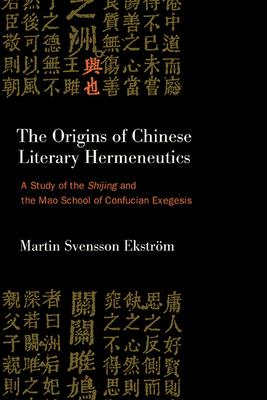
Book
The Origins of Chinese Literary Hermeneutics: A Study of the Shijing and the Mao School of Confucian Exegesis
(Write a Review)
$39.00
One such puzzled reader was Mao Heng, a learned Confucian employed at a minor court in the mid-second century BCE. The object of this study is the Commentary that Mao composed on the Odes, and in particular the hermeneutic tool-the xing-that he invented to explain the figurality and tropes at play in them. Mao's "xingish" interpretation of the Odes is both genuinely hermeneutic, in that it explains the rhetorical organization of these poems, and thoroughly ideological, since it allows Mao to transform them into Confucian dogma. The book also argues that the xing, content, function, and cultural importance, is comparable to the Aristotelian concept of metaphor (metaphora), and that the xing, the Odes, and the practice of shi (Chinese "poetry") demand an intercultural, "comparative" reading for a more nuanced understanding.
One such puzzled reader was Mao Heng, a learned Confucian employed at a minor court in the mid-second century BCE. The object of this study is the Commentary that Mao composed on the Odes, and in particular the hermeneutic tool-the xing-that he invented to explain the figurality and tropes at play in them. Mao's "xingish" interpretation of the Odes is both genuinely hermeneutic, in that it explains the rhetorical organization of these poems, and thoroughly ideological, since it allows Mao to transform them into Confucian dogma. The book also argues that the xing, content, function, and cultural importance, is comparable to the Aristotelian concept of metaphor (metaphora), and that the xing, the Odes, and the practice of shi (Chinese "poetry") demand an intercultural, "comparative" reading for a more nuanced understanding.
Paperback
$39.00